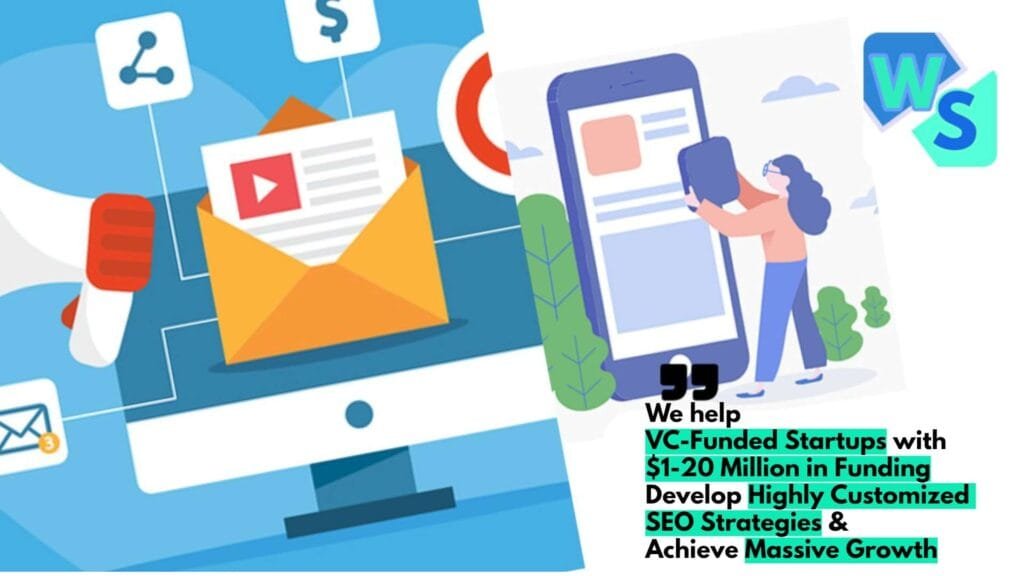Understanding Email Marketing
Email marketing is a powerful tool in the marketing arsenal, particularly for businesses aiming to communicate effectively with their audience. Understanding its importance and benefits can empower you to leverage this strategy effectively.
Importance of Email Marketing
Email marketing holds a vital place in digital marketing strategies. Nearly 80% of professionals acknowledge that email marketing drives customer acquisition and retention, with the return on investment (ROI) generated almost double compared to other marketing channels (ColorWhistle). With more than 361 billion emails sent daily, projected to rise to 376 billion by 2025, email marketing outperforms other online marketing strategies such as SEO and PPC in delivering exceptional ROI (SuperOffice).
| Key Statistics | Figures |
|---|---|
| Daily Emails Sent | 361 billion |
| Projected Daily Emails by 2025 | 376 billion |
| Average ROI | $36 for every $1 spent (Constant Contact) |
Benefits of Email Marketing
The benefits of email marketing are extensive, making it one of the best ways to grow your business. Most email users check their inbox daily, which supports consistent communication with your audience (Mailchimp). A 4 out of 5 marketers expressed preference for email marketing over social media marketing, highlighting its significance in business strategies (ColorWhistle).
Here are some key advantages of utilizing email marketing:
- Cost-Effective: Email marketing often has a lower cost per acquisition compared to traditional marketing channels.
- Targeted Messaging: Enables personalized communications which can improve customer engagement.
- Performance Tracking: Allows you to track the success of your campaigns through metrics like open rates and click-through rates.
Incorporating email marketing into your overall marketing strategy not only enhances customer relationships but also supports your business’s growth objectives. To explore more about effective campaigns, check out our resource on email marketing campaigns.
Types of Email Marketing Campaigns
Email marketing comes in various forms, and selecting the right type of campaign is crucial for effectively reaching your audience. Here, you’ll explore segmented campaigns and trigger-based emails, two powerful strategies that can enhance the effectiveness of your outreach.
Segmented Campaigns
Segmented campaigns involve dividing your email list into distinct groups based on specific criteria such as demographics, behavior, or preferences. This approach to email marketing can drive significant results. Marketers utilizing segmented campaigns report an impressive 760% increase in revenue, emphasizing the importance of targeted email marketing services to foster strong customer relationships (ColorWhistle).
The effectiveness of segmentation extends beyond revenue. Improved performance indicators are often seen across various metrics, including better open rates, leads, transactions, and customer acquisition. However, a concerning statistic reveals that 9 out of 10 email marketers do not segment their databases. Prioritizing segmentation in your strategy can yield significantly higher engagement rates and a better overall return on investment.
| Performance Metric | Segmented Campaigns | Non-Segmented Campaigns |
|---|---|---|
| Open Rates | Higher | Lower |
| Revenue Increase | 760% | Standard |
| Customer Engagement | Improved | Basic |
Trigger-Based Emails
Trigger-based emails are automated messages sent to subscribers based on specific actions they take, such as signing up for a newsletter or making a purchase. These emails demonstrate remarkable effectiveness, outperforming traditional emails by 86% and generating revenue at least 24 times higher. On average, triggered emails have 5 times higher open rates and 15 times higher click-through rates (SuperOffice). Currently, 51% of companies incorporate trigger-based emails into their marketing strategies, which account for up to 20% of their email marketing revenue.
Common examples of trigger-based emails include welcome emails, thank-you emails, and transactional emails. These messages provide opportunities to engage customers immediately and maintain connections throughout their journey, ultimately enhancing customer loyalty.
| Email Type | Description | Performance Advantage |
|---|---|---|
| Welcome Emails | Sent to new subscribers | 5x higher open rates |
| Thank You Emails | Follow-up after a purchase or action | Enhanced customer satisfaction |
| Transactional Emails | Related to user transactions | Often leads to repeat purchases |
By integrating segmented and trigger-based emails into your campaigns, you can effectively enhance your outreach and improve your customer engagement. This approach can further establish your brand in a competitive market while ensuring compliance with regulations like the GDPR, which emphasizes user consent and data privacy in all email communications (Business.com). For more insights on tools that facilitate these strategies, consider exploring email marketing software designed to support these efforts.
Effective Email Marketing Strategies
Implementing effective strategies is crucial to maximizing the potential of your email marketing campaigns. This section highlights three key strategies: personalization in emails, A/B testing, and GDPR compliance.
Personalization in Emails
Personalization is one of the most powerful techniques in email marketing. Studies show that personalization can generate around $20 in return on investment (ROI) for every $1 invested. Furthermore, people are 82% more likely to open personalized emails compared to generic ones (SuperOffice). Despite these advantages, 70% of brands do not incorporate personalization into their email strategies.
Incorporate personalized elements such as the recipient’s name in the subject line or tailored content based on user behavior. Creating personalized subject lines can boost open rates by up to 26%. Additionally, segmenting your email lists can enhance performance indicators, leading to better open rates and increased revenue.
| Metric | Impact of Personalization | Percentage |
|---|---|---|
| ROI for every $1 invested | $20 | 2000% |
| Likelihood to open emails | 82% | – |
| Increase in open rates with personalized subject lines | 26% | – |
A/B Testing
A/B testing, or split testing, involves sending two variations of an email to different segments of your audience to determine which version performs better. This strategy allows you to test elements such as subject lines, layouts, images, and calls-to-action, ultimately leading to improved engagement and conversion rates.
For example, split testing subject lines can help you identify which one resonates more with your audience. By analyzing the results, you can continuously refine your email marketing strategy to enhance engagement.
| A/B Test Element | Description |
|---|---|
| Subject Line | Test different subject lines for open rates |
| Call-to-Action | Evaluate which CTA prompts more clicks |
| Email Layout | Experiment with design formats to see what performs best |
GDPR Compliance
Adhering to the General Data Protection Regulation (GDPR) is essential for any business engaged in email marketing. The GDPR necessitates obtaining explicit consent from individuals before you can contact them via email. This means you must demonstrate how consent was obtained and allow users to request the deletion of their personal information (Business.com).
Non-compliance can lead to significant penalties, including fines of up to 20 million euros (approximately $22 million) or 4% of your annual revenue, whichever is higher. To avoid such consequences, ensure your email marketing practices are transparent, respectful of consumer privacy, and legally compliant.
By incorporating these effective strategies—personalization, A/B testing, and GDPR compliance—you can enhance the performance of your email marketing efforts and build stronger relationships with your audience. For more insights on crafting potent campaigns, consider looking into email marketing campaigns or exploring marketing automation tools to streamline your efforts.
Choosing Email Marketing Software
When selecting the right email marketing software, it’s critical to consider factors that align with your business needs, especially in terms of affordability, user experience, and essential features.
Affordable Solutions
Finding budget-friendly solutions is key for many businesses, especially small ones looking to maximize their email marketing ROI. Some platforms like Mailmodo are highly recommended for their innovative offerings such as interactive AMP emails and advanced automation without the hefty price tag.
Keeping in mind that a WebFX survey indicated that in-house email marketing with a paid platform typically costs between $751 and $1000 per month, opting for cheaper software can help you reduce unnecessary spending. Budget-friendly options often provide the ability to select only the features you need, avoiding the complexities and costs associated with more advanced plans.
| Email Marketing Tool | Estimated Monthly Cost |
|---|---|
| Mailmodo | Affordable (variable based on usage) |
| Other Paid Platforms | $751 – $1000 |
User-Friendly Interfaces
A user-friendly interface can make all the difference in managing your email campaigns effectively. Many cheap email marketing tools offer straightforward interfaces that simplify the process for small business owners, as they may not have a dedicated marketing team. Less complicated platforms generally have a shorter learning curve, allowing you to design and send emails without getting overwhelmed. This helps you focus on your campaigns rather than the technology.
Important Features to Consider
When evaluating email marketing software, certain features are vital for ensuring your marketing efforts are effective. Look for the following functionalities:
- Segmentation: Ability to categorize your contacts for targeted campaigns.
- Automation: Features that allow you to set up trigger-based emails, reducing the need for manual input.
- Analytics and Reporting: Insights into open rates, click rates, and engagement metrics will inform your strategies.
- Responsive Designs: The software should allow you to create visually appealing emails that look good on all devices.
- GDPR Compliance: Ensuring that your marketing practices comply with data privacy regulations is essential.
User reviews from platforms like AppSumo or Capterra can also guide you in making informed decisions, as they provide insights into the performance and reliability of various tools. By selecting the right email marketing software that fits your budget and criteria, you can streamline your campaigns and improve your outreach effectively. For more information, check out our guide on email marketing campaigns.
Best Email Marketing Platforms
Choosing the right email marketing software is essential for effective campaigns. Here are some of the best platforms to consider for your business.
Brevo
Brevo stands out as an excellent choice for ecommerce ventures. This platform provides tools for managing multi-channel customer interactions through email, SMS, and chat. Its integrated CRM allows you to handle lead pipelines effectively. Brevo includes essential automation features and live chat capabilities for on-site engagement, making it easier to connect with your customers and drive conversions. For more details, visit Brevo’s official site.
| Feature | Description |
|---|---|
| Multi-Channel Marketing | Email, SMS, and chat integration |
| CRM Features | Integrated CRM for managing leads |
| Automation | Standard automation capabilities |
| Special Features | Live chat for on-site engagement |
iContact
iContact is designed for beginners who seek a full-featured email marketing system. This platform offers AI-powered content generation tools, making it easier to create engaging emails. iContact also provides an anti-spam policy and seamless integration with other business systems, thanks to its open API and Zapier support. These features make iContact a reliable option for those new to email marketing. Learn more about iContact here.
| Feature | Description |
|---|---|
| User-Friendly | Ideal for beginners |
| AI Tools | AI-powered content generation |
| Anti-Spam | Strong anti-spam policy |
| Integrations | Supports API and Zapier |
Zoho Campaigns
Zoho Campaigns is part of the larger Zoho suite, which is known for its reliability in various business applications. This platform provides a robust set of features, including email automation, custom reporting, and campaign tracking. With its user-friendly interface, Zoho Campaigns helps you design engaging newsletters and manage your subscriber lists efficiently. It also offers integrations with Zoho CRM and other analytics tools, enhancing your marketing efforts.
| Feature | Description |
|---|---|
| Email Automation | Comprehensive email automation features |
| Reporting | Custom reporting capabilities |
| User Experience | Easy-to-use interface |
| Integrations | Direct integration with Zoho CRM |
Omnisend
Omnisend is recognized for its comprehensive and user-friendly platform, ideal for online retailers. It offers powerful automation capabilities that streamline your marketing efforts across different channels, including email, SMS, and push notifications. Omnisend enhances customer engagement through its comprehensive analytics dashboard and campaign planning tools, ensuring that you can effectively monitor performance and make informed decisions. For further information, check Omnisend’s offerings here.
| Feature | Description |
|---|---|
| Multi-Channel | Email, SMS, and push notification capabilities |
| Automation | Advanced automation features |
| Analytics | Comprehensive analytics dashboard |
| User Interface | Intuitive platform for campaign planning |
These platforms provide a range of features suitable for various business needs, allowing you to choose the best fit for your email marketing campaigns. For more guidance on email campaigns, be sure to explore our section on email marketing campaigns.
Top Email Marketing Tools
When selecting the right email marketing software for your business, considering various platforms can help you find the best fit for your needs. Below are some of the top email marketing tools available today.
Mailchimp
Mailchimp is a widely recognized email marketing platform that caters to businesses across various industries, particularly eCommerce and retail. It provides a free plan that supports up to 2,000 subscribers, with paid plans starting at $10.54 per month. Key features include:
- Templates for easy email design
- Reporting analytics to track campaign performance
- A/B testing capabilities for optimizing email content
For more information on how Mailchimp can enhance your email marketing campaigns, visit their site.
| Feature | Free Plan | Paid Plan Starting At |
|---|---|---|
| Subscribers | Up to 2,000 | $10.54/month |
| A/B Testing | Yes | Yes |
| Reporting | Yes | Yes |
ConvertKit
ConvertKit is specifically designed for creators, bloggers, and online entrepreneurs. It offers a forever free plan for up to 1,000 subscribers, with paid plans starting at $25 per month. Important features of ConvertKit include:
- Focus on automation for personalized email sequences
- User-friendly registration forms for building subscriber lists
- Integration with other platforms to streamline marketing efforts
ConvertKit is ideal if you want to enhance your content delivery through email marketing. For more insights, check their site.
| Feature | Free Plan | Paid Plan Starting At |
|---|---|---|
| Subscribers | Up to 1,000 | $25/month |
| Automation | Yes | Yes |
| Registration Forms | Yes | Yes |
ActiveCampaign
ActiveCampaign stands out as an all-in-one platform that combines email marketing, automation, and customer relationship management (CRM). The service begins at $9 per month after a 14-day free trial. It focuses on advanced automation and spam testing features, allowing for:
- Efficient customer segmentation based on behavior
- Customizable workflows to improve engagement
- Integration with numerous other tools to enhance marketing efforts
Learn more about how to utilize ActiveCampaign for a comprehensive marketing strategy by visiting their page.
| Feature | Free Trial | Paid Plan Starting At |
|---|---|---|
| CRM Integration | Yes | $9/month |
| Automation | Yes | Yes |
| Spam Testing | Yes | Yes |
AWeber
AWeber has been in operation since 1998, providing reliable email marketing services for small businesses, entrepreneurs, and content creators. Their plans start at $16.15 per month. AWeber is known for its strong automation features and:
- Easy-to-use email design tools
- Detailed performance analytics
- Excellent customer support
This platform is suitable for those who value a straightforward and effective email marketing solution. For more details, check AWeber’s website.
| Feature | Free Plan | Paid Plan Starting At |
|---|---|---|
| Subscribers | No | $16.15/month |
| Automation | Yes | Yes |
| Support | Yes | Yes |
By exploring these options, you can identify which email marketing software aligns best with your business objectives and marketing efforts. Consider the features and pricing structures that suit your company as you make your selection. For additional resources on marketing tools, consider visiting sections on marketing automation tools.
Reviews of Email Marketing Software
Choosing the right email marketing software is crucial for the success of your campaigns. Here, we showcase the top recommendations from PCMag and provide insights from user reviews to help you make an informed decision.
PCMag’s Recommended Platforms
PCMag has been assessing leading email marketing platforms for over a decade, examining their features, ease of use, and overall effectiveness. Their Editors’ Choice winners for the best email marketing software include:
| Platform | Features | Ease of Use |
|---|---|---|
| Brevo | Automation, analytics, A/B testing | High |
| Campaigner | Advanced segmentation, design templates | Moderate |
| HubSpot | Integrated CRM, marketing automation | High |
| Mailchimp | User-friendly interface, customizable templates | Very High |
These platforms represent some of the best options currently available for fulfilling your email marketing needs.
User Reviews and Feedback
Obtaining user feedback is essential when evaluating email marketing tools. Reviews on platforms like AppSumo and Capterra provide valuable insights into the usability and effectiveness of different solutions. For instance, users often praise the intuitive interfaces of platforms like Mailchimp, while options like HubSpot are highlighted for their comprehensive features and integration capabilities.
Many users also appreciate the customer support offered by various providers, which can significantly enhance the overall experience when navigating email campaigns. Recommendations from fellow users can help you gauge the reliability and performance of an email marketing software, especially if you are looking for specialized features that best suit your business needs (Mailmodo).
When exploring the abundance of choices, remember to consider how each platform aligns with your goals and preferences regarding email marketing campaigns.
Email Marketing Statistics
Understanding the statistics behind email marketing can help you strategize and optimize your campaigns. This section focuses on the ROI of email marketing, email engagement trends, and the implications of GDPR and data privacy laws on your email marketing practices.
ROI of Email Marketing
Email marketing delivers one of the highest returns on investment (ROI) among all marketing strategies. On average, for every $1 spent on email marketing, you can expect a return of $42. This statistic underscores the effectiveness of email campaigns in driving revenue. Additionally, segmented campaigns significantly enhance revenue potential, showing up to a 760% increase in revenue for marketers using targeted email strategies. These impressive numbers highlight why incorporating email marketing software into your strategy is crucial for business growth.
| Investment ($) | Expected Return ($) |
|---|---|
| 1 | 42 |
| 1 (segmented campaign) | 760% increase in revenue |
For more insights into profitable marketing strategies, explore digital marketing types.
Email Engagement Trends
Engagement rates for email marketing continuously show promising trends. Most email users check their emails daily, making email a reliable channel for business communications. Furthermore, personalized subject lines boost open rates by 26%, indicating the importance of personalization in your campaigns. Marketers who implement segmented campaigns see a significant increase in email engagement and revenue.
| Strategy | Open Rate Improvement |
|---|---|
| Personalized Subject Lines | +26% |
To delve deeper into how to execute effective email campaigns, refer to email marketing campaigns.
GDPR and Data Privacy Laws
The General Data Protection Regulation (GDPR) has established strict guidelines for email marketing, mandating that businesses obtain explicit consent from individuals before sending marketing emails. Companies must be able to demonstrate how consent was obtained, and individuals have the right to request the deletion of their personal data. Additionally, businesses should avoid collecting unnecessary data to comply with GDPR requirements. Understanding these regulations is essential to ensure your marketing strategies align with legal standards.
For further information on marketing regulations, including GDPR compliance, check out our related article on email marketing agency.
By being aware of these statistics and regulations, you can enhance your email marketing strategies and achieve more effective communication with your audience.





















